Mackenzie Azuero, BA
M.S. Student
Dr. Tan’s lab is interested in stem cell biology, vascular ageing, congenital vascular malformations, exosomal biology, and therapeutic benefits of natural compounds.
Dr. Tan's lab focuses on generation of disease-derived iPSCs and iPSC-induced vascular cells, vascular organoids (VOs), and neurovascular organoids as clinically relevant models to understand the fundamental mechanisms of and therapeutic development for vascular and neurovascular related diseases. His research is disease-centered and translational-oriented.

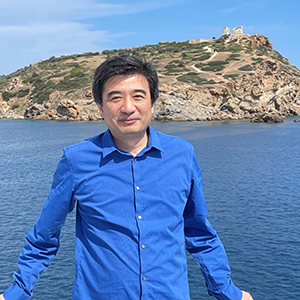
Dr. Tan is an Associate Professor in the Department of Cell Biology and Anatomy at the School of Medicine Columbia. He is also affiliated with the Cardiovascular Research Center and the Department of Bioengineering at USC.
He obtained his B.Sc. in Medicine and M.Sc. in Biochemistry and Molecular Biology at the Xiangya School of Medicine, Central South University, China. He received his Ph.D. in Neurophysiology and Neurobiology at the University of California, Los Angeles, USA, in 2008 under the mentorship of Dr. Jack L. Feldman.
His Ph.D. dissertation was to study rhythmic neurons in the brainstem for neuronal control of breathing. In 2010, his family moved to Anaheim, Orange County where Disneyland is located. Then he joined Dr. J Stuart Nelson’s group in the Department of Surgery and the Beckman Laser Institute at the University of California, Irvine, where he began his research in congenital vascular malformations. This was a radical and involuntary transition for his research from neurons to endothelial cells.
When he was weighing academic continuation or industrial opportunity as the next step of his career, he received an NIH/NIAMS K01 in 2013 with a perfect score (zero) on the first time of submission. This award kept him in academia. He is deeply indebted to Dr. J Stuart Nelson and Dr. Dongbao Chen at UC Irvine for their mentorships. He received an R01 and a DoD discovery award in 2018 and made his cross-continental journey to the School of Medicine University of South Carolina.
He continues to miss a variety of authentic foods and no-change-cool weather in Southern California but not the torturous traffic on the 405/105/5/10/91/22 highways. He has been enjoying the beautiful natural environment in South Carolina.
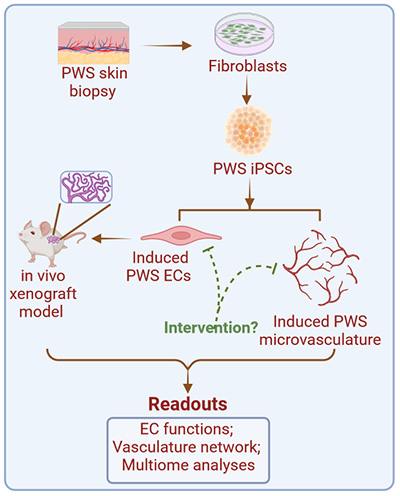
The disease mechanism of and treatment development for capillary malformations (CM) (a.k.a., Port Wine birthmark or stain (PWB or PWS) and Sturge-Weber syndrome (SWS). In this project, we aim to dissect the causal pathways to vascular anomalies using CM disease-derived iPSCs and iPSC-induced vascular cells and organoids as clinically relevant models. We also aim to develop novel types of therapeutic strategies for targeting lesional ECs in combination with laser-based technology.
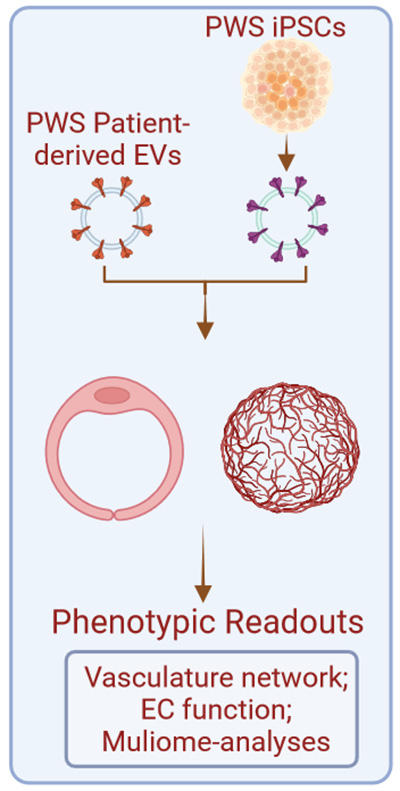
Role of extracellular vesicles (EVs) in endothelial dysfunction. In this project, we aim to characterize the molecular signatures of CM patient-derived EVs and CM iPSC-derived EVs and their pathological functions in endothelial function transformation.
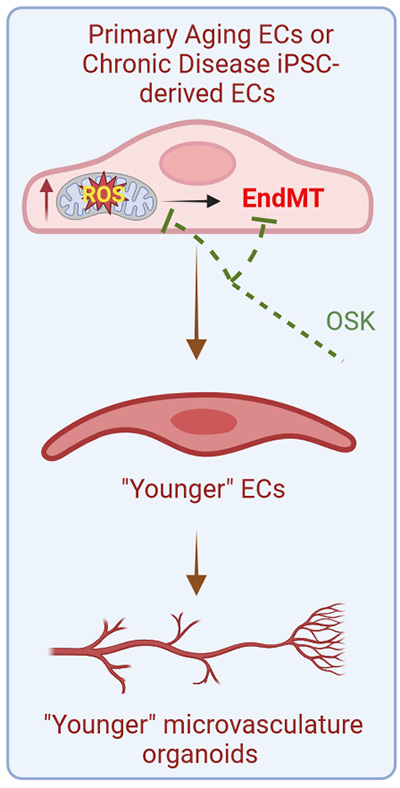
Reprogramming of aging ECs for endothelial rejuvenation. In this project, we aim to rejuvenate aging or chronic metabolic disease ECs and restore their physiological hemostasis for the mitigation of pathological deterioration.
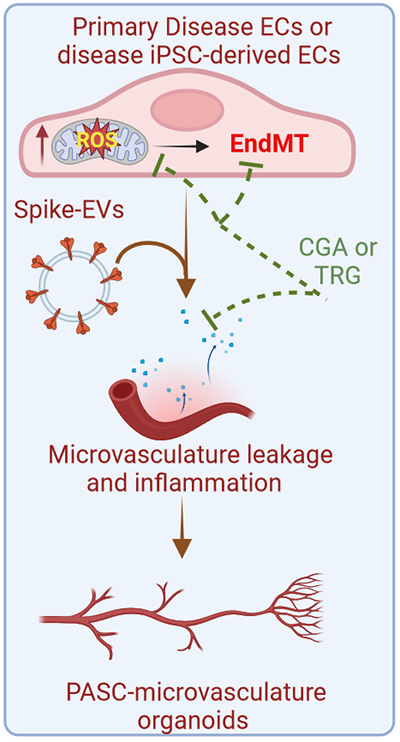
Endothelial dysfunctions and innate functions of natural compounds for vascular benefits. In this project, we aim to study how low-grade chronic inflammation (such as the spike protein of SARS-CoV-2 and long COVID) can exacerbate endothelial dysfunctions by preexisting metabolic comorbidities. We will use primary disease ECs or disease iPSC-derived ECs as cell models to dissect the mechanisms. At the same time, we will investigate whether some natural compounds such as chlorogenic acid (CGA) or trigonelline (TRG) can mitigate such pathological phenotypes.
M.S. Student
M.S. Student
M.S. Student
Undergraduate Student
Graduated December 2024
Graduated May 2025
Graduated June 2025
Full List of Dr. Tan's Publications.
Selected Publications
Nguyen V, Harper A, Azuero M, Castellanos I, He S, Hochman ML, Wenceslau CF, Chen D,Jegga AG, Wang Y, Fan D, Nelson JS, and Tan W. Vascular organoids derived from capillary malformation-induced pluripotent stem cells exhibit disease-relevant phenotypes. Stem Cell Reviews and Reports, 2025 Sept, accepted.
Pernomian L, Waigi EW, Nguyen V, Mohammed AD, da Costa TJ, Fontes MT, Kubinak JL, Aitken A, Biancardi VC, Sinclair DA, McCarthy CG, Wang Y, Tan W, Wenceslau CF. A Single-Short Partial Reprogramming of the Endothelial Cells decreases Blood Pressure via attenuation of EndMT in Hypertensive Mice. Circulation Research, 2025 Aug, accepted.
Nguyen, Vi, Elaine G. Taine, Dehao Meng, Taixing Cui, and Wenbin Tan. 2024. Chlorogenic Acid: A Systematic Review on the Biological Functions, Mechanistic Actions, and Therapeutic Potentials. Nutrients 16, no. 7: 924. https://doi.org/10.3390/nu16070924.
Nguyen V, Taine EG, Meng D, Cui T, Tan W. Pharmacological Activities, Therapeutic Effects, and Mechanistic Actions of Trigonelline. Int J Mol Sci. 2024 Mar 16;25(6). doi: 10.3390/ijms25063385. Review. PubMed PMID: 38542359.
Gao C, Nguyen V, Hochman ML, Gao L, Chen EH, Friedman HI, Nelson JS, Tan W. Current clinical evidence is insufficient to support HMME-PDT as the first choice of treatment for young children with port wine birthmarks. Lasers Surg Med. 2024 Mar 20;. doi: 10.1002/lsm.23779. PubMed PMID: 38506454.
Fu Z, Zeng J, Zhu L, Wang G, Li P, Li W, Song Z, Su Z, Sun X, Tang H, Luo P, Tan L, Gao L, Wang D, Yan S, Zhou L, Tong X, Tang Z, Zhang H, Tan W, Lu J, Zhu S. Clinical factors associated with remission of obese acanthosis nigricans after laparoscopic sleeve gastrectomy: a prospective cohort study. Int J Surg. 2023 Dec 1;109(12):3944-3953. doi: 10.1097/JS9.0000000000000693. PubMed PMID: 37678289; PubMed Central PMCID: PMC10720823.
Nguyen V, Gao C, Hochman ML, Kravitz J, Chen EH, Friedman HI, Wenceslau CF, Chen D, Wang Y, Nelson JS, Jegga AG, Tan W. Endothelial cells differentiated from patient dermal fibroblast-derived induced pluripotent stem cells resemble vascular malformations of port-wine birthmark. Br J Dermatol. 2023 Nov 16;189(6):780-783. doi: 10.1093/bjd/ljad330. PubMed PMID: 37672656; PubMed Central PMCID: PMC10653332.
Nguyen V, Gao C, Hochman ML, Kravitz J, Chen EH, Friedman HI, Wenceslau CF, Chen D, Wang Y, Nelson JS, Jegga AG, Tan W. Supporting materials: Endothelial cells differentiated from patient dermal fibroblast-derived induced pluripotent stem cells resemble vascular malformations of Port Wine Birthmark. bioRxiv. 2023 Aug 24;. doi: 10.1101/2023.07.02.547408. PubMed PMID: 37662218; PubMed Central PMCID: PMC10473620.
Pernomian L, Tan W, McCarthy C, Wenceslau CF. Reprogramming endothelial and vascular smooth muscle cells to prevent and treat hypertension. Med Hypotheses. 2023 Oct;179. doi: 10.1016/j.mehy.2023.111162. Epub 2023 Sep 7. PubMed PMID: 37744557; PubMed Central PMCID: PMC10512690.
Nguyen V, Kravitz J, Gao C, Hochman ML, Meng D, Chen D, Wang Y, Jegga AG, Nelson JS, Tan W. Perturbations of Glutathione and Sphingosine Metabolites in Port Wine Birthmark Patient-Derived Induced Pluripotent Stem Cells. Metabolites. 2023 Aug 31;13(9). doi: 10.3390/metabo13090983. PubMed PMID: 37755263; PubMed Central PMCID: PMC10537749.
Cao X, Nguyen V, Tsai J, Gao C, Tian Y, Zhang Y, Carver W, Kiaris H, Cui T, Tan W. The SARS-CoV-2 spike protein induces long-term transcriptional perturbations of mitochondrial metabolic genes, causes cardiac fibrosis, and reduces myocardial contractile in obese mice. Mol Metab. 2023 Aug;74:101756. doi: 10.1016/j.molmet.2023.101756. Epub 2023 Jun 20. PubMed PMID: 37348737; PubMed Central PMCID: PMC10281040.

Congratulations to Vi Nguyen, PhD, for receiving the Outstanding Dissertation Award in 2025. This prestigious award is given to one awardee in science category per year at the USC.
Active Research Support
Completed Research Support